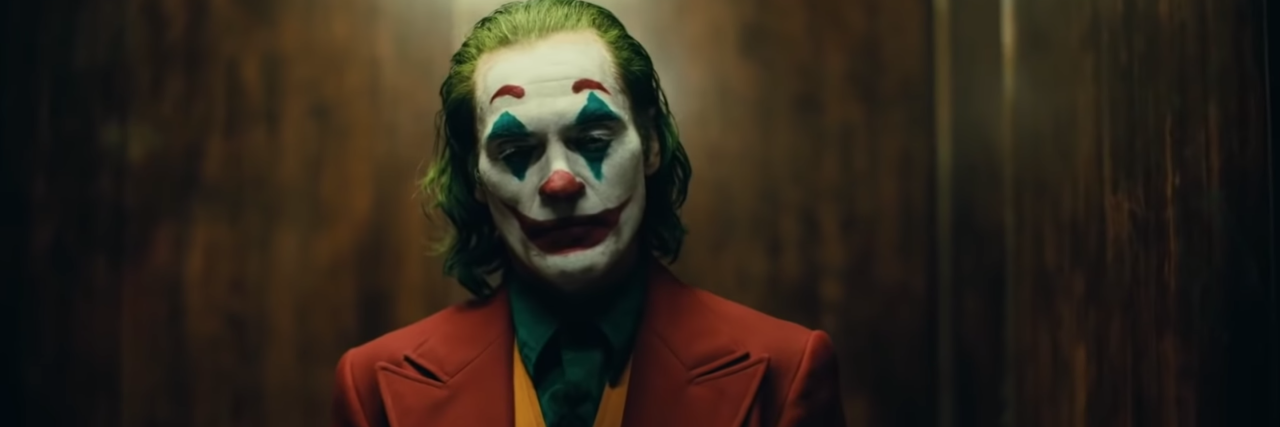To Joaquin Phoenix, From One of the People You Forgot in Your Oscar Acceptance Speech
Editor's Note
Can’t sleep? Join the Up All Night group on The Mighty to meet people who can relate.
Dear Joaquin,
First off, I would like to congratulate you on your Oscar win for best actor. It’s quite the accomplishment, one for which you worked very hard. I’m happy for you and wish you continued success with the Academy.
That being said, I want to point out a serious mistake you made in your acceptance speech. You mention the importance of commonality within the fight against injustice, yet when mentioning different marginalized groups, you forgot disabled people. While this erasure is nothing new, it is a glaring error when accepting an award for playing a character that is mentally ill.
Throughout “Joker,” the injustices against disabled people are on display through Arthur Fleck’s struggle with mental illness and (what is likely) damage from a traumatic brain injury. Arthur is mocked and beaten for inappropriate laughter, in spite of having a card that such is part of his illness. Seven vital medications to achieve at least some balance are taken away from Arthur when the program supporting him is cut, due to a lack of funding. Multiple safety nets designed for people like Arthur fail and rampant ableism exacerbates the consequences.
Let’s take a look at some of your lines from “Joker” and see how they align with ableism in the United States.
“If it was me dying on the sidewalk, you’d walk right over me.” It is a daily phenomenon to walk over homeless disabled people, and it is all too easy to walk over one that is dying on the street. This is a daily truth for homeless disabled people, who make up 40 percent of the homeless population, as reported by Disability Scoop. On an anecdotal level, I comforted a sobbing homeless man after his insulin was stolen at a shelter and he feared dying from not being able to afford another bottle. A fear I know all too well from the cost of EpiPens and trying to outrun the Catch-22 of choosing between death and debt.
“I just hope that my death makes more cents than my life.” Carrie Ann Lucas, a pioneer for disability rights lawyer and mother to four disabled children, died because UnitedHealthcare refused to cover an antibiotic for a lung infection. This refusal forced her to take a less effective drug, resulting in a bad reaction that put her in the ICU and led to her eventual death. No one needs to be ill to recognize how often this “joke” ends disabled lives, and from a personal standpoint, I fear what could happen if insurance refuses to cover several of my medications. For insurance companies, disabled deaths always make more “cents” than life.
“The worst part of having a mental illness is people expect you to behave as if you don’t.” It may be illegal to discriminate based on mental illness, but that hasn’t stopped it from happening in the workforce. People who disclose mental illness at their job often face avoidance, harassment, and a lack of prospects from being seen as a “burden.” Those who say nothing risk being fired because they cannot get the necessary accommodations for work success. I’ve been on both sides — one where an employer harassed me about needing medication at all and one where I’ve put on a “good face” to hide how much I was crumbling inside. Mental illness is equated to a “bad choice” and “bad behavior,” even though none of us asked to be this way.
We are dying because of ableism’s influence on employers, insurance companies, and even the government. Our rights need just as much attention as any of the marginalized groups you mentioned in your speech, especially when it is an ableism-based story that gets you an award. Ableism is everywhere in “Joker,” and I ask that you remember the disability community for this reason.
Once again, congratulations on your Oscar, as well as your extensive body of work. I look forward to seeing more of your performances in the future, as well as a speech where you acknowledge the importance of disability rights. Even if it’s just one brief mention of “ableism.”
Sincerely,
Christina

